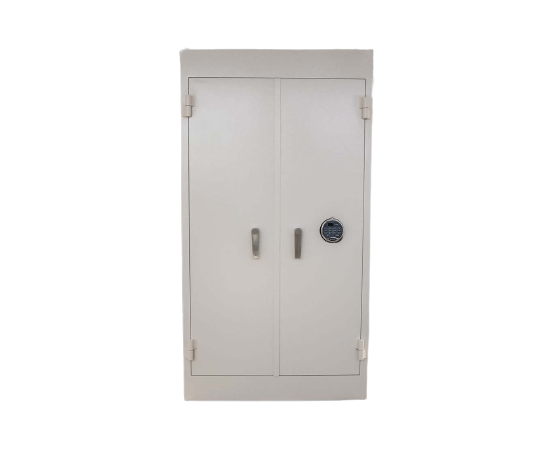Why Your Safe May Not Be Enough
To fully understand the extent of your insurance coverage in the event of a burglary, it's essential to familiarize yourself with what your home insurance policy covers. Your policy typically includes coverage for the structure of your home, as well as your personal belongings. However, the extent of that coverage can vary depending on the specific policy you have. It's crucial to read through your policy and understand the limitations and exclusions outlined within it.
For instance, some policies may have a cap on the amount of coverage for high-value items like jewelry or art. Additionally, some policies may not cover damage to your home if it's caused by a break-in but may cover theft of your personal belongings. It's important to know what your policy covers and doesn't cover so that you can make informed decisions about how to protect your valuables.
Even if you have adequate coverage, it's worth considering additional security measures to safeguard your home and belongings. While owning a safe may seem like a foolproof solution, more is needed. Thieves may be able to break into your safe or steal the entire thing. Consider investing in a security system for your home and installing motion-activated lights or cameras to deter burglars.
It's important to keep in mind that insurance is there to provide a safety net in case of unexpected events, but it's also up to you to take proactive steps to protect your home and belongings. By understanding your policy and investing in additional security measures, you can rest easy knowing that you're fully prepared in case the worst happens.,
What Your Home Insurance Policy Covers
Your home insurance policy is an essential piece of protection for your home and belongings. But do you know exactly what your policy covers? Most standard home insurance policies cover damage caused by fire, lightning, theft, vandalism, and certain types of natural disasters like hurricanes and tornadoes. However, it's crucial to review your policy carefully and understand the specific coverage options available to you.
Some policies also include coverage for personal liability, which can help protect you if someone is injured on your property and decides to sue. Additionally, you can add coverage for things like jewelry, artwork, or other high-value items that may not be fully covered under your standard policy.
Understanding your policy and its coverage options is crucial in ensuring that you have adequate protection and are fully prepared for any unexpected events that may occur. In the next section, we'll take a closer look at some of the factors that may affect your home insurance claims so that you can be even better prepared.,
Factors that May Affect Your Home Insurance Claims
Understanding the factors that may affect your home insurance claims can help you prepare for any unforeseen events that may occur. One factor to consider is the age and condition of your home, as older homes may be more susceptible to damage from natural disasters or wear and tear. Additionally, your insurance company may take into account the location of your home, such as whether it is situated in an area prone to flooding or wildfires.
Another factor to keep in mind is the type of coverage you have and any exclusions that may apply. For example, if your policy includes a water damage exclusion, you may not be covered for damage caused by a burst pipe or water leak. It is important to review your policy regularly and make any necessary updates or changes to ensure you have adequate coverage.
Finally, your claims history may impact your ability to make future claims. Insurance companies may view policyholders with an account of frequent claims as higher risk and may increase premiums or deny coverage altogether. It is important to consider the potential consequences before making a claim and only file a claim when necessary.
Understanding these factors can help you make informed decisions about your insurance coverage and minimize the risk of denied claims. In the next section, we'll discuss how to safeguard your valuables and protect them from damage or loss.,
How to Safeguard Your Valuables
Taking preventive measures is the best way to ensure the safety of your valuables and avoid the stress of filing an insurance claim. The first step is to create an inventory of your assets, including photographs and purchase receipts. This way, you can easily prove ownership and value to your insurer in case of loss or damage.
Consider storing your precious belongings, such as jewelry or artwork, in a safe or secure location within your property. Additionally, installing a security system, smoke detectors, and fire extinguishers can help reduce the risk of damage or theft.
Regular maintenance and repairs of your home's plumbing, electrical, and HVAC systems can also prevent accidents and minimize the likelihood of filing a claim. Finally, be sure to read and understand your insurance policy to determine what is covered and to what extent.
By taking these steps, you can safeguard your valuables and minimize the likelihood of filing a claim. However, in the event of an unforeseen circumstance, it is important to know when to contact your insurance company for assistance.,
When to Contact Your Home Insurance Company
In the event of an accident or unexpected event in your home, it can be difficult to know when to reach out to your insurance company for help. Some factors to consider when deciding whether to file a claim include the severity of the damage and the cost of repairs.
If the damage is minor and the repair costs are relatively low, it may not be necessary to file a claim with your insurance company. This is because even if you have a low deductible, the amount you receive from the insurance company may not be worth the increase in your premiums. Moreover, filing a claim may negatively impact your insurance score, making it more difficult to secure coverage in the future.
On the other hand, if the damage is significant and the repair costs are high, it may be necessary to file a claim. In this case, reaching out to your insurance company can ensure that you receive the compensation you need to repair your home and replace any damaged items.
Ultimately, the decision to file a claim with your insurance company should be made on a case-by-case basis. It is important to carefully consider the extent of the damage and the costs involved before making a decision. If you are unsure whether to file a claim, you can always reach out to your insurance provider for guidance.,
In conclusion, owning a safe is indeed a step towards securing your valuables, but more is needed to protect you from loss. Understanding how your safe and home insurance claims are connected is crucial in taking the necessary precautions to safeguard your belongings. Review your home insurance policy carefully, take measures to prevent theft, and contact your insurance company immediately in case of loss. Remember, a stitch in time saves nine. As you safeguard your valuables, always keep in mind that you cannot put a price on peace of mind.








